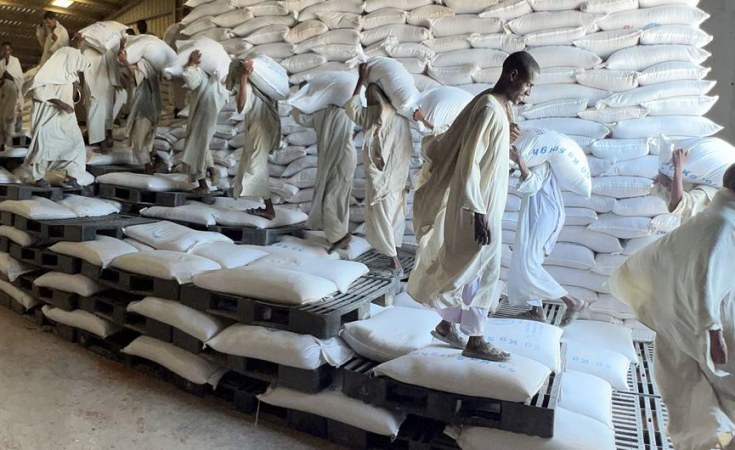Amidst a flurry of international voices working to mediate the crisis in Sudan, the United States must not allow Sudanese civil society to be drowned out.
As rival security forces continue vying for power in Sudan by terrorizing its population, the prospects for an end to the crisis seem to grow more distant by the day. The "pre-negotiation talks" in Saudi Arabia hold only a tenuous promise of the most minimal steps toward easing the suffering. Most indicators point toward continued fighting, and the stream of bad news and failed ceasefires can make it seem as though an even deeper crisis is inevitable. But there are two important truths about Sudan that analysts and policymakers should keep front and center in the weeks ahead to point the way forward.
The first truth concerns responsibility for the current fighting. The United States' approach to Sudan over the past several years has faced criticism from multiple sources, most of whom decry Washington's failure to hold the generals accountable for the October 2021 coup and credulous continued engagement with them. Others point to the way the United States linked its Sudan policies so closely to those of Gulf states with no interest in support of the country's pro-democracy movement. One can agree with these arguments and desperately hope that Washington will learn from these mistakes without losing sight of the fact that Sudan's crisis today is due to the decisions of the Sudanese Armed Forces' (SAF) and Rapid Support Forces' (RSF) leadership. The blame for the death and destruction unfolding in Sudan lies with them, not the diplomats who have tried to coax them toward a transition to civilian rule, however ineffectually. An honest assessment of diplomatic policy failures cannot be permitted to muddy the waters of accountability.
It is critical that, at long last, policymakers reckon with exactly who the antagonists in Sudan's conflict really are and what the institutions they lead are all about. The SAF and RSF were both part of the system of repression and elite accommodation that the Sudanese people courageously rejected in 2018 and 2019. They shared responsibility for derailing the transitional government in 2021 and have repeatedly demonstrated that their commitments at the negotiating table are not credible. With each new report of vital infrastructure targeted and civilians assaulted as men with guns loot and commandeer their homes, the world can see how far they are willing to go to cling to power.
The second truth relates to the factor that differentiates Sudan from other states that have fallen into instability at the hands of power-hungry warlords. Sudan's pro-democracy movement is a marvel. It has been resolute in demanding accountable, civilian governance; prescient in their warnings about a transitional process that kept armed actors in the driver's seat; visionary in developing ideas for decentralizing power in the country; and practical in finding concrete ways to help each other amid a disorienting and destructive crisis. This has been an undervalued asset in Sudan, and while it is terribly late in the day to focus on elevating their voices, doing so is also essential to avoid worst-case scenarios.
By all means, the United States should continue urgent work aimed at achieving a ceasefire, preventing external actors from fueling the conflict, and delivering humanitarian assistance to Sudanese in need. These are challenging tasks, made even more difficult by the multiplicity of potential mediators and fora that could keep the international community busy, and in the worst case distracted from the realities on the ground, for the foreseeable future. But that crisis management agenda should not crowd out a broader strategy that aims to shrink the space for discredited armed actors and elevate the voices of Sudanese civil society in the international conversations about the way forward.


